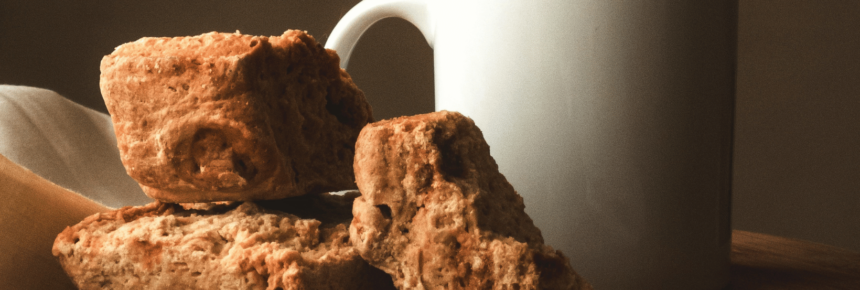By: Jami Visagie
Working as a physiotherapist in a hospital, I encounter patients from all walks of life, each with their unique challenges and stories. One story that has stayed with me deeply is that of Mr. Thomas (alias), a cancer patient with whom I shared a significant bond during his final months.
Mr. Thomas was in his early fifties, diagnosed with a progressed form of oesophageal cancer. When I first met him, his physical condition was deteriorating rapidly, but his spirit remained remarkably strong. He was determined to maintain as much independence as possible, despite the various limitations his illness imposed. Our sessions were a blend of gentle exercises and heartfelt conversations. Due to both of us coming from an Afrikaans background, we shared many similarities. He often shared stories about his younger days, his family, and most of all his love for rusks – yes, rusks!
Unfortunately, due to his condition, he was unable to eat solid foods anymore. There was a twinkle in his eye when he talked about dipping a rusk in a fresh cup of coffee almost every morning of his life (prior to being diagnosed). It was coincidentally something I also shared a passion for. We loved to joke around and see who can make the other’s stomach rumble first.
One afternoon, after a particularly difficult session, he held my hand and thanked me for my support. His words were simple but profound. “You’ve helped me feel human again,” he said. That moment encapsulated the essence of why I do what I do. It’s not just about physical healing; it’s about offering compassion and dignity to those who need it most. As his condition worsened, our focus shifted from rehabilitation to palliative care. The exercises became more about alleviating pain and maintaining some degree of mobility. It was during this phase that I witnessed the true extent of his courage and resilience. Despite the bouts of nausea and excruciating pain, he very rarely complained and always greeted me with a smile. A few weeks later, Mr. Thomas’s condition took a turn for the worse after a surgery site in his abdomen became infected. He was moved to the intensive care unit, and was only for palliative care – our sessions came to an end. I visited him several times, and each visit was filled with a mix of warmth and sorrow.
The day he passed away, I felt a profound sense of loss. It wasn’t just the loss of a patient; it was the loss of a friend, someone whose strength and kindness had left an indelible mark on my heart. In the quiet moments after his passing, I reflected on the lessons he had taught me about resilience, gratitude, and the human spirit’s capacity to endure. Mr. Thomas’s memory remains a guiding light in my career. Every time I encounter a patient facing similar struggles, I think of him and strive to offer the same compassion and care that he inspired in me. May his story also serve as a reminder to notice and enjoy the things in life that make you happy – eat that extra rusk in the morning if you feel like it, meet up with the friend you never get to see anymore, stop and smell the roses. Live life to the absolute fullest.

